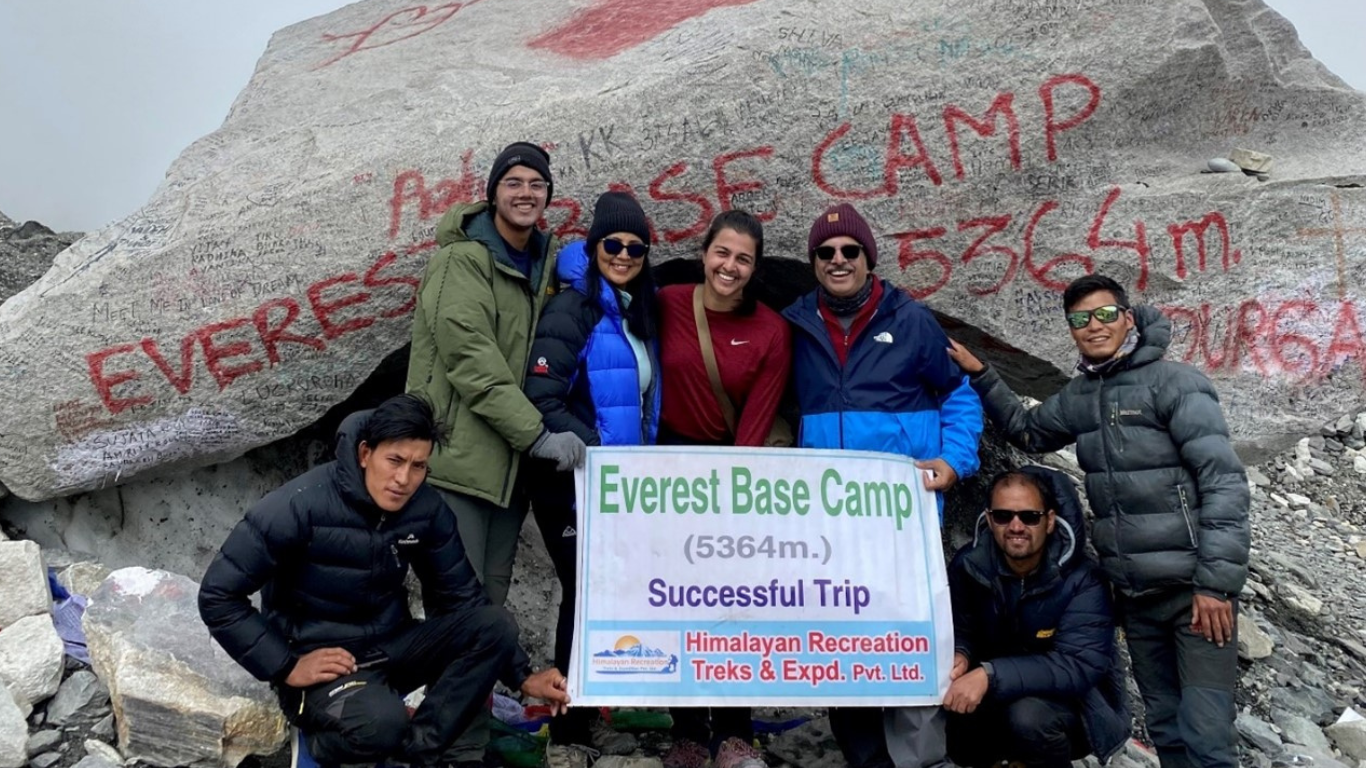Alok Deoraj is a teaching professor of environmental health sciences and MPH graduate program director at the FIU Robert Stempel College of Public Health & Social Work. He’s also a notable member of the global learning faculty and an affiliate member of the FIU Honors College.
In addition to teaching, Deoraj conducts research on molecular and environmental toxicology, specifically assessing the cancer risk associated with individual or combined exposures to environmental pollutants, endocrine-disrupting chemicals, heavy metals, PFAS (per- and polyfluoroalkyl substances), and microplastics.
When he’s not at FIU, Deoraj can be found going on exciting adventures with his family. Last month, he celebrated two years since trekking to Mount Everest Base Camp, a popular destination for the people, who seek to experience the stunning views of the Himalayas without climbing the peak. Learn more about Deoraj below.
Tell us about your hike to Everest Base Camp.
Last month, June 2025, was the second anniversary of my Mount Everest Base Camp trek with my family. I have lived in Florida at an elevation of 3 meters above sea level for over 15 years now. Deciding and planning to trek to the 5,400-meter elevation at Everest Base Camp with my family was a 6-month process. Today, I can say that this was one of the best things we've done as a family so far.
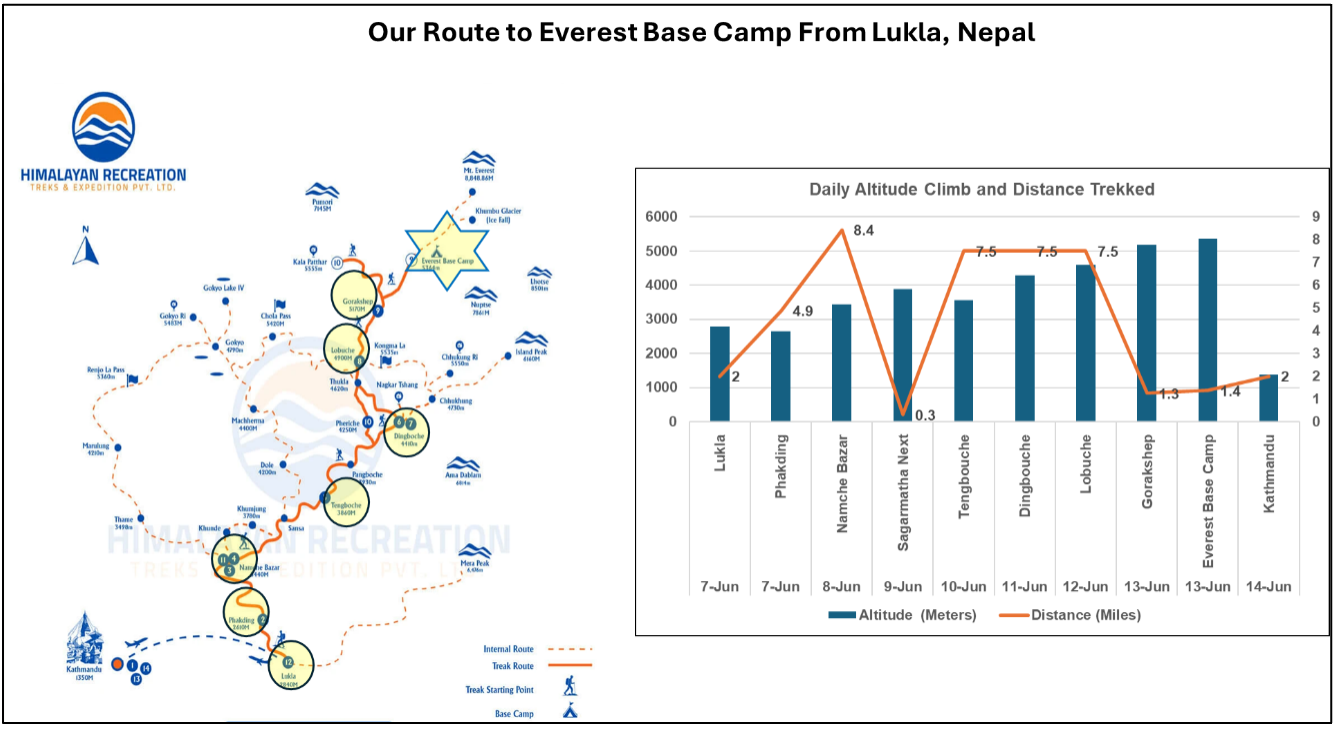
From Kathmandu, Nepal, we flew to Lukla, which is the most dangerous airport in the world. From Lukla, we started our climb in the first week of June 2023. The total trek along the Dudh Koshi River path to the base camp is about 45 miles, which traverses deep valleys, steep climbs and miles of stairs. We crossed some of the highest suspension bridges while on this path. We trekked up to 5 – 8 hours per day continuously for 7 days.
As the altitude increased, we experienced high-altitude symptoms, such as: breathlessness, upset stomach, waking up in the middle of the night gasping for air, 20° F temperature and sunburn. We slept in tea houses (akin to motels in the villages) on our route. The discomforts became apparent over 3,000 meters. Amenities, such as food choices, Wi-Fi and toilet facilities started to diminish, and we lost the green cover beyond 4,000 meters.
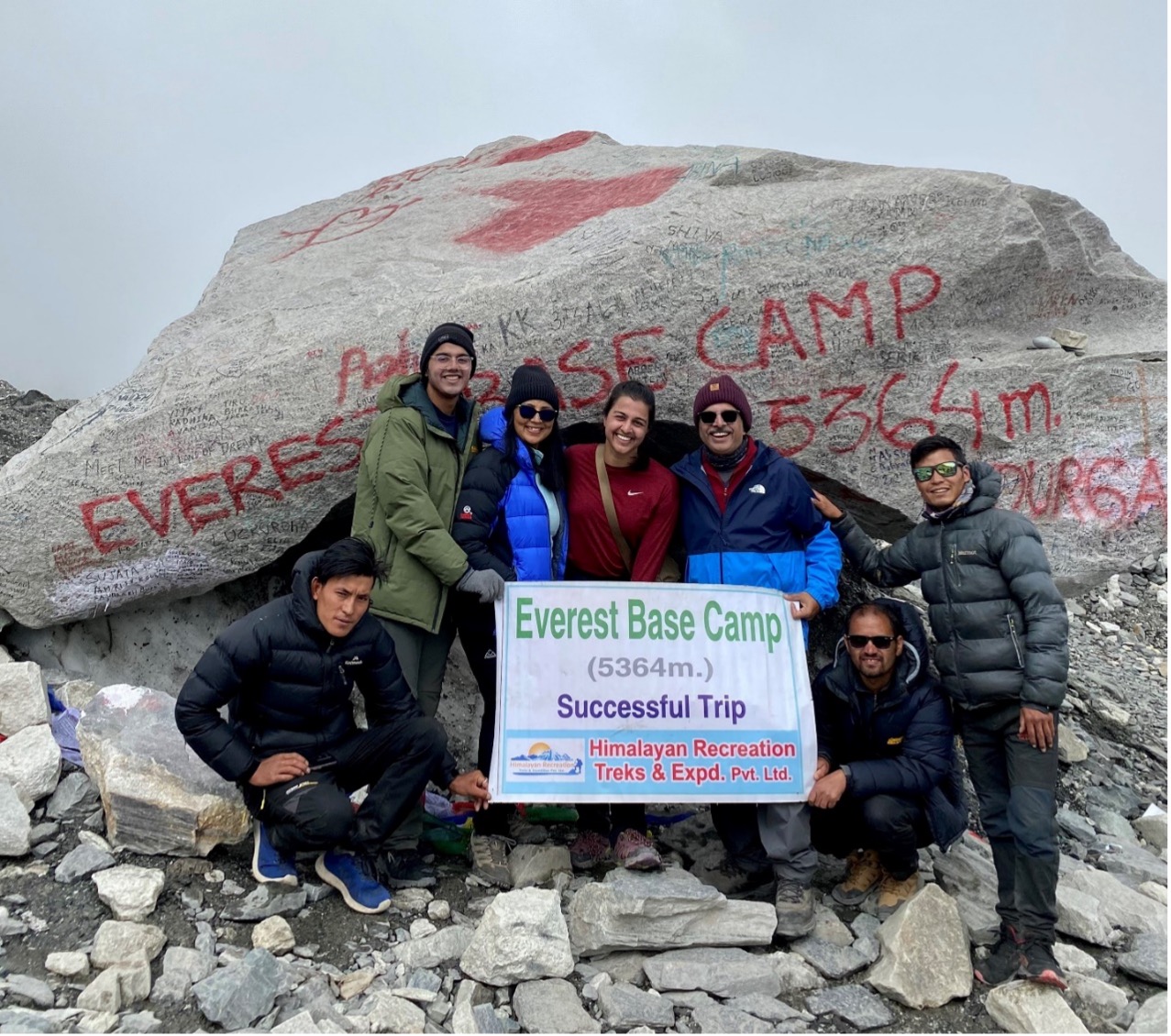
On the other hand, the breathtaking, majestic views of shiny snow-clad mountains, the changing landscapes, from lush green to Martian terrains with no vegetation.
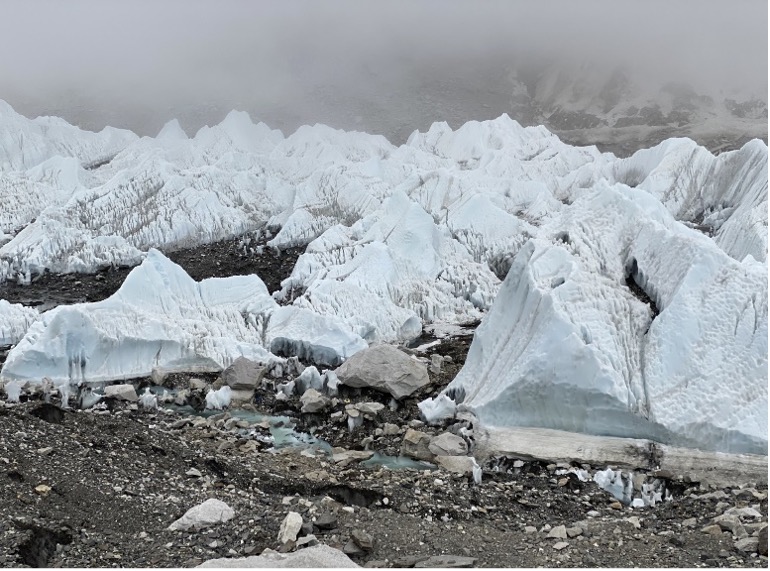
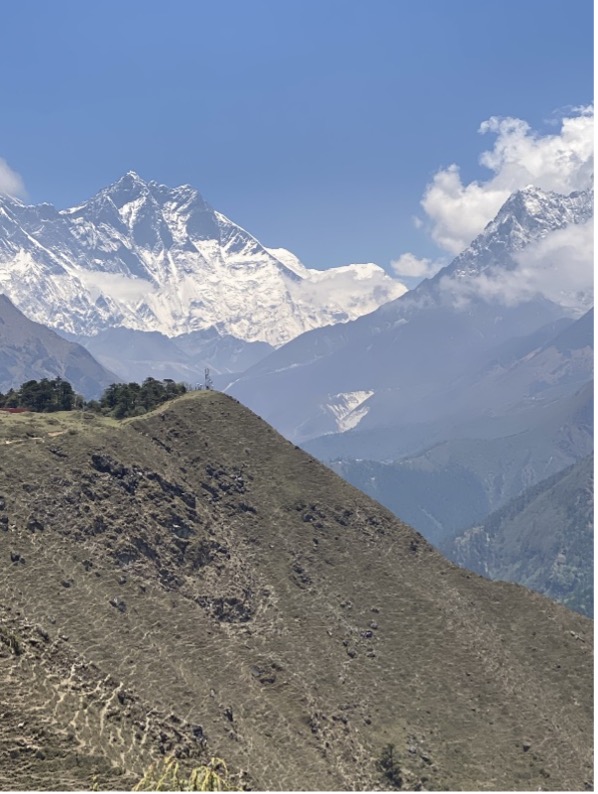
At places, we made new trails due to landslides and glaciers. Observed people living in the small villages along the way, obtained glimpses of their lifestyles, tasted their food—it was all worth it!
What’s something you came away with from your trek?
The Everest Base Camp trekking experience made me ponder the people of the Khumbu Valley and those living in the Sagarmatha National Park region, as well as their efforts to protect the fragile ecosystem; which is being rapidly degraded due to the influx of people and resulting traffic jams on the Everest Base Camp and other trails. Discarded metal cans, plastic bottles and other plastic waste, as well as personal-use items, have become a nightmare for maintaining pristine areas clean and protected. The Sagarmatha Next efforts on “Carry Me Back” are gaining visibility, and it's commendable.
How did you get into this hobby/passion project?
I have a calling for the mountains. In my student days, I was a member of the Climbers and Explorers Club of India, and I trekked to the Valley of Flowers (4,500 meters), Hem Kund Saheb (4,600 meters), and Vasudhara Falls (3,650 meters). Later with my family, I also had a chance to hike to Kilauea Crater and Shenandoah, Congaree, and Acadia National Parks in the U.S. (many more remaining), as well as Machu Picchu (2,400 meters) and Rainbow Mountain (5,036 meters) in Peru. However, the appeal of the Great Himalayas has always fascinated me. I made a promise with my son to go trekking in the Himalayas after he graduated from high school. When the time came, we were not sure where we would go. And then, around Christmas 2022, we decided as a family to explore the greatest of all: the Everest Base Camp trek.
What do you like to do when you’re not on campus?
I enjoy traveling with my family, exploring new places, and watching movies with my wife. I check out cool restaurants in and around Miami, play pickleball, do yoga, ride my bike, and try to grow vegetables and herbs in my yard. I am also involved in the community as a board member of the Indian Regional Cultural Center (IRCC) of Florida, where I advise the youth club on finding and organizing volunteer activities for IRCC events.
Last question: what’s a song, book, or podcast you’d recommend?
One of my favorite podcasts is “Hidden Brain: A Conversation About Life's Unseen Patterns” by Shankar Vedantam. I would also recommend another insightful podcast, "The Making of the Global Learning Universal," developed at FIU by Stephanie Doscher, where she also interviewed me in Season 1, Episode 4.

